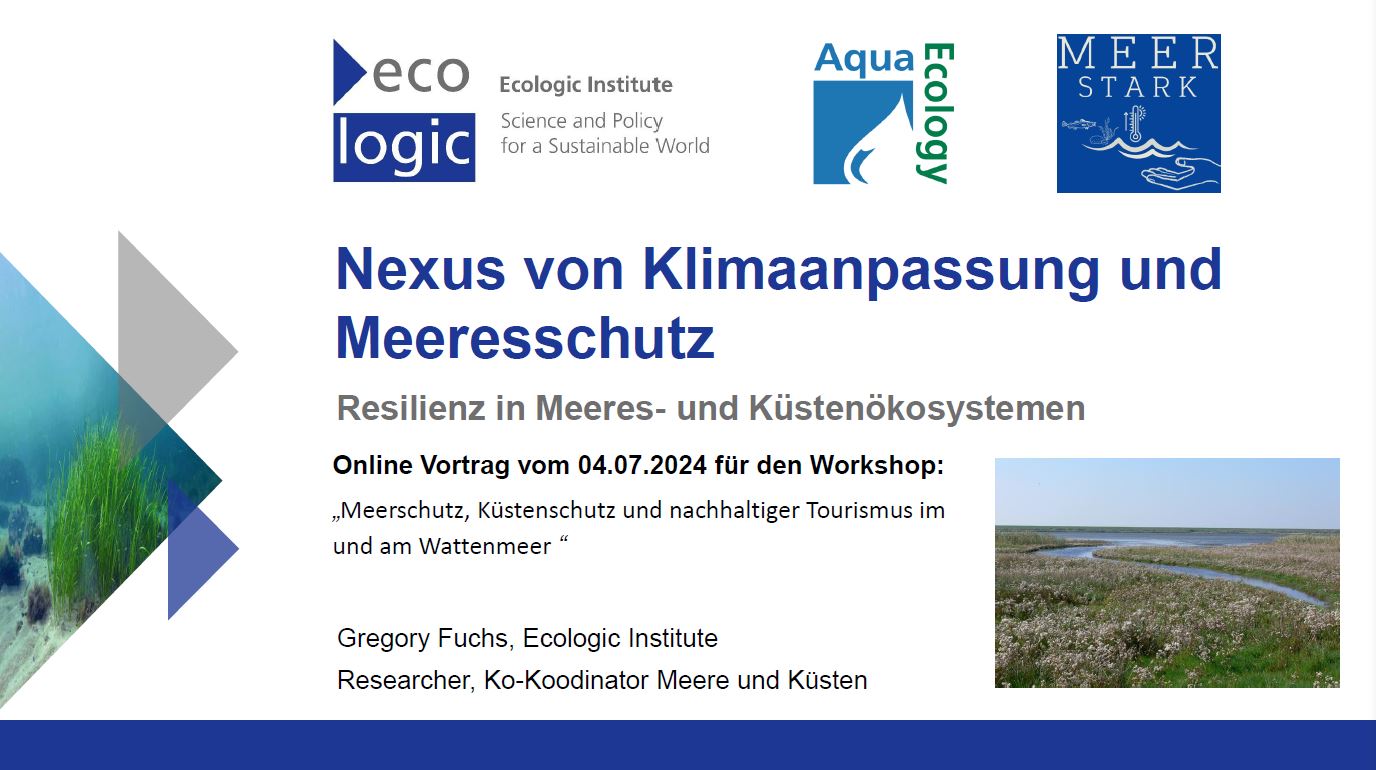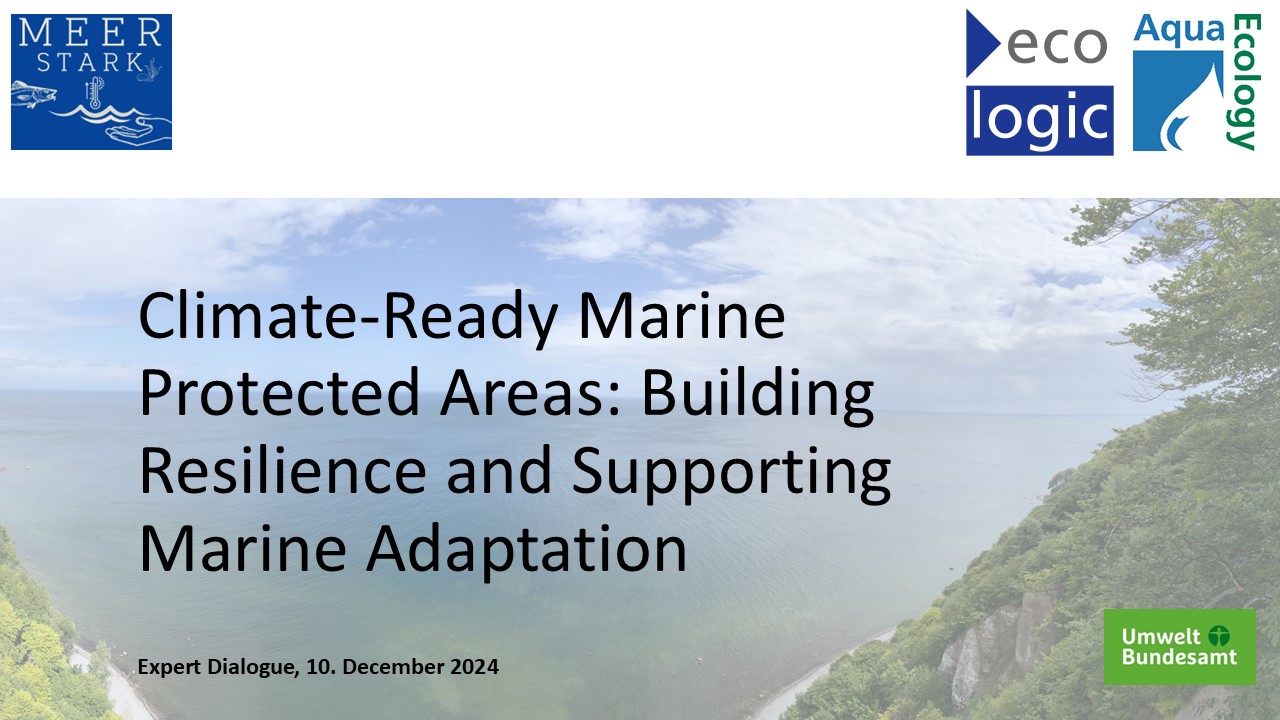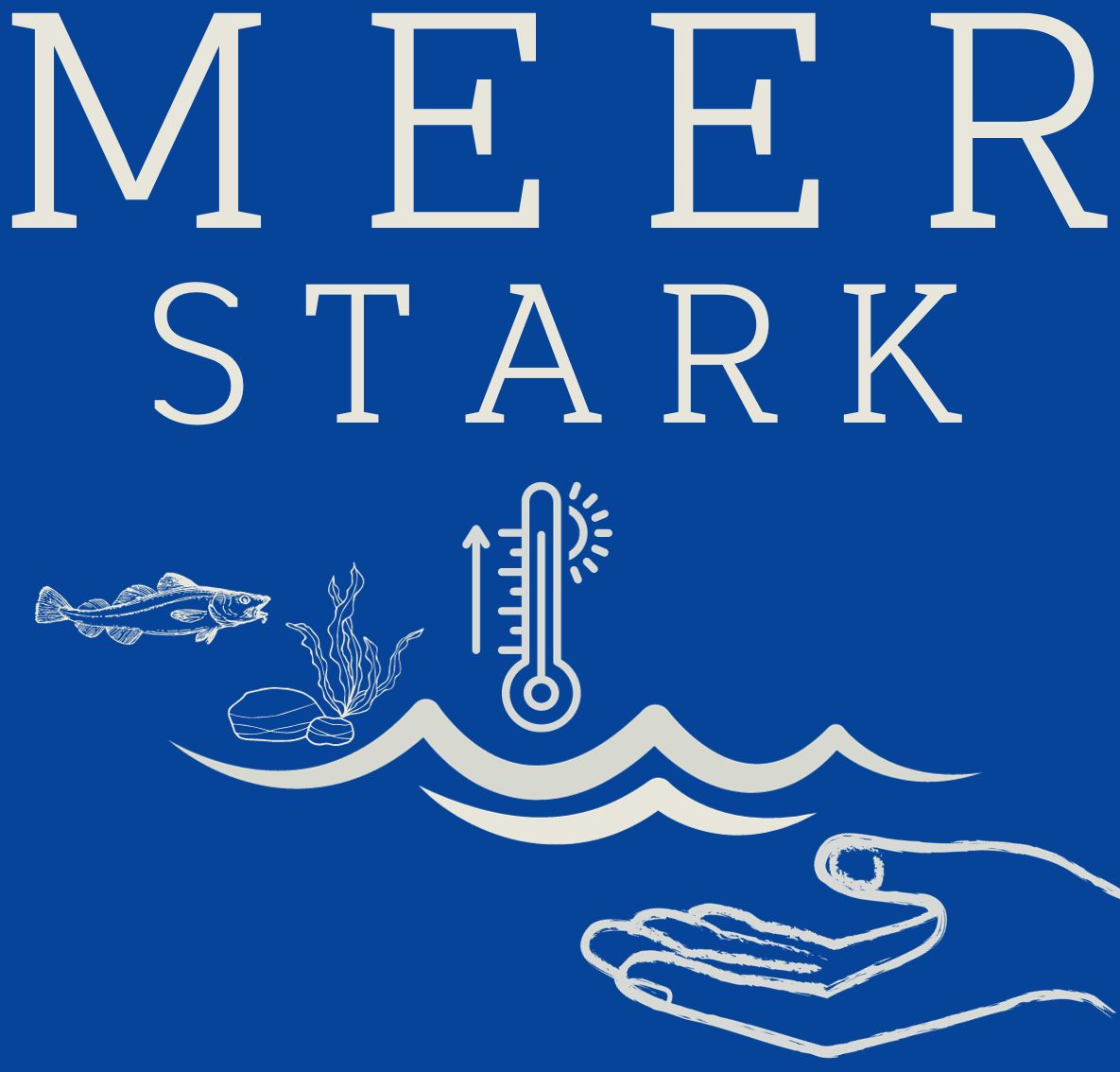Synergien und Strategien für Meersschutz und Klimaanpassung
- Publication
- Citation
Fuchs, Gregory et al. 2024: Synergien und Strategien für Meersschutz und Klimaanpassung. Poster. Ecologic Institute: Berlin.
The poster ‘Synergies and Strategies for Marine Protection and Climate Adaptation’ presents key results and approaches of research on the integration of marine protection and climate adaptation. It shows how these two areas can be linked in order to effectively meet the challenges of climate change in marine and coastal ecosystems. The methods presented include a systematic literature review focussing on practice-oriented and policy-supporting approaches. The research findings emphasise the importance of an integrated, multifunctional approach based on the ecosystem approach to optimise synergies between marine conservation and climate adaptation.
Synergies and benefits of integrated approaches
Particular attention is paid to the potential benefits of such integration, ranging from strengthening ecological resilience to promoting social resilience and economic benefits. The study shows that measures such as the establishment of marine protected areas and the restoration of habitats not only serve to protect biodiversity, but can also make significant contributions to climate adaptation. It also emphasises the need for a strategic shift in policy and practice to promote flexible and adaptive approaches that are prepared for future climate change.
Presentation and discussion of the poster at the Marine Environment Symposium 2024
This Ecologic Institute poster was first presented in the plenary session of the Marine Environment Symposium 2024, organised by the Federal Maritime and Hydrographic Agency (BSH) in Hamburg. It was then placed in the foyer, where it aroused great interest and was discussed intensively by the participants.
Visual presentation and structure of the poster
The poster uses a clear and structured design to convey the complex interrelationships between marine protection and climate adaptation. The infographics are designed to clearly illustrate the most important results and recommendations. The chosen colour palette and layout supports readability, making the content accessible to both experts and a wider audience.
Want to use our poster?
The infographic has been published under the Creative Commons licence CC BY 4.0. This means that it can be copied and redistributed in any medium or format and for any purpose, as long as the authors (Ecologic Institute) are credited accordingly.
The poster was created as part of the MEER:STARK project, which is funded by the German Environment Agency and runs from September 2022 to November 2025. The aim of the project is to develop cross-sectoral measures for marine protection and climate adaptation in the North and Baltic Seas. It analyses the interactions between anthropogenic pressures and climate change and their impact on marine ecosystems. The project also promotes dialogue between different interest groups to ensure a sustainable and resilient future for the oceans.


